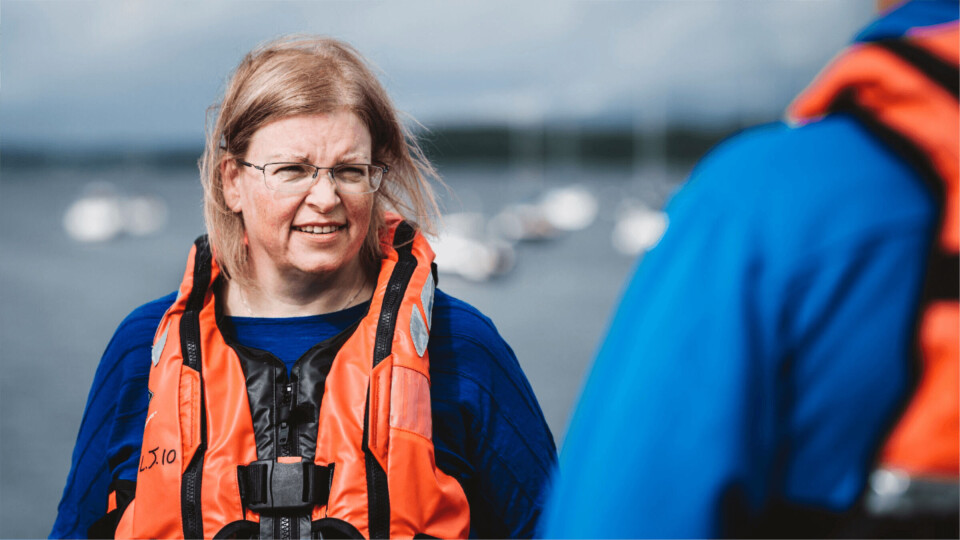
Looking back, thinking ahead: Anne Anderson
Fish Farming Expert has asked individuals connected to the salmon farming industry about their year, and what they hope for in 2022. We continue the series with Scottish Sea Farms’ head of sustainability and development, Anne Anderson.
2021 has been a record year for the Scottish salmon industry in terms of harvests, but more volume doesn’t necessarily mean bigger profits for farmers or suppliers. How has your company fared this year?
Scottish Sea Farms has advanced its work to grow volumes, harvesting circa 33,000 tonnes in 2021 – up 9,000 tonnes on 2020 (24,000 tonnes).
Like other farmers, of the seas and on land, we have experienced health challenges this year, with a dry summer followed by bursts of stormy weather resulting in environmental challenges and, in turn, higher than average fish mortalities at some farms.
In our work to overcome these challenges, 2021 saw us announce a new partnership with AquaGen to select eggs from the best performing fish grown on our own marine farms; the aim being to increase resistance amongst future generations of fish, particularly with regards to the key area of gill health.
We’ve been working similarly hard with regards to sea lice control with our own in-house teams collaborating with Mull-based partners Inverlussa Marine Services, Scale AQ UK and Ocean Kinetics on a new multi-purpose vessel that has been designed around fish welfare, rather than vice versa.
At its heart is a next generation Thermolicer with a simpler, straighter pipe layout creating a gentler experience for the fish and a wider than standard pipe of 600m diameter to ensure a smoother journey through the system.
What was the most significant event of 2021 for your company?
The purchase of Grieg Seafood Hjaltland UK was a major milestone for Scottish Sea Farms.
Representing the single largest investment that the company has made, it enables us to bring both estates under one farming strategy to ensure the best growing conditions possible: from stocking and feeding regimes to fish health and sea lice management.
It’s all about improving overall biological performance to boost survival, increase harvest volumes and, ultimately, produce more meals.
What are the most significant challenges and opportunities for the salmon farming industry in the coming year?
In early 2022, Professor Russel Griggs OBE will report on his work in relation to the regulatory reform of Scottish aquaculture; a unique opportunity to support the future delivery and development of the sector at a time when society is increasingly asking for responsible food provision.
The blue economy, and particularly blue food, has a hugely important role to play in this, not just here in Scotland but at global level.
The work to reform regulation of the sector, along with the Scottish Government setting out its vision for aquaculture, means that 2022 is likely to attract much interest from all sides of the debate.
So, I suspect we face yet another challenging year of activists determined to go to any length to malign the work of others – including, at times, resorting to fabrication and sensationalism.
I’ve had first-hand experience of this type of behaviour previously when working with other sectors of Scotland’s business communities, so I know that it’s not unique to salmon farming by any stretch.
Similarly, Angela Merkel’s farewell speech in early December (in which she said democracy “depends on solidarity and trust, including the trust in facts” – editor) reminded us all how damaging smears, misrepresentation and falsehoods can be when left unchecked.
Sadly, I think we’ll continue to experience individuals risking their safety but also the health and welfare of our own people, both physically and psychologically in 2022.
So, we will continue our work to better inform people, hosting visits to our farms and facilities – centrally by government and locally by our neighbours – so that people can see for themselves how, where and why we rear our salmon.
Tomorrow: Graham Smith, general manager for ScaleAQ in the UK and Ireland.























































